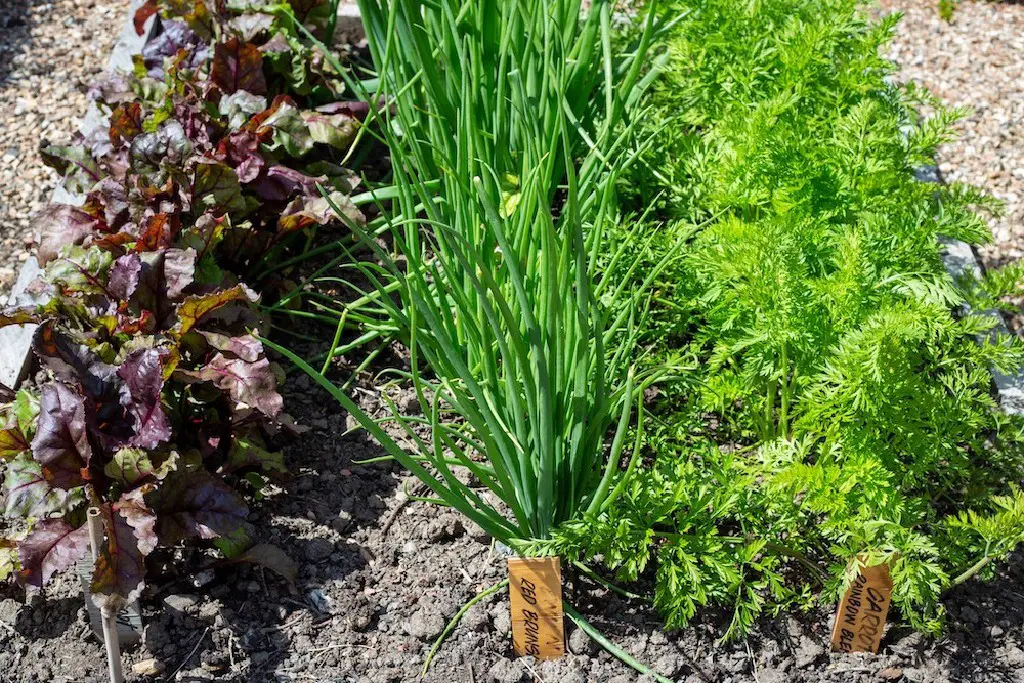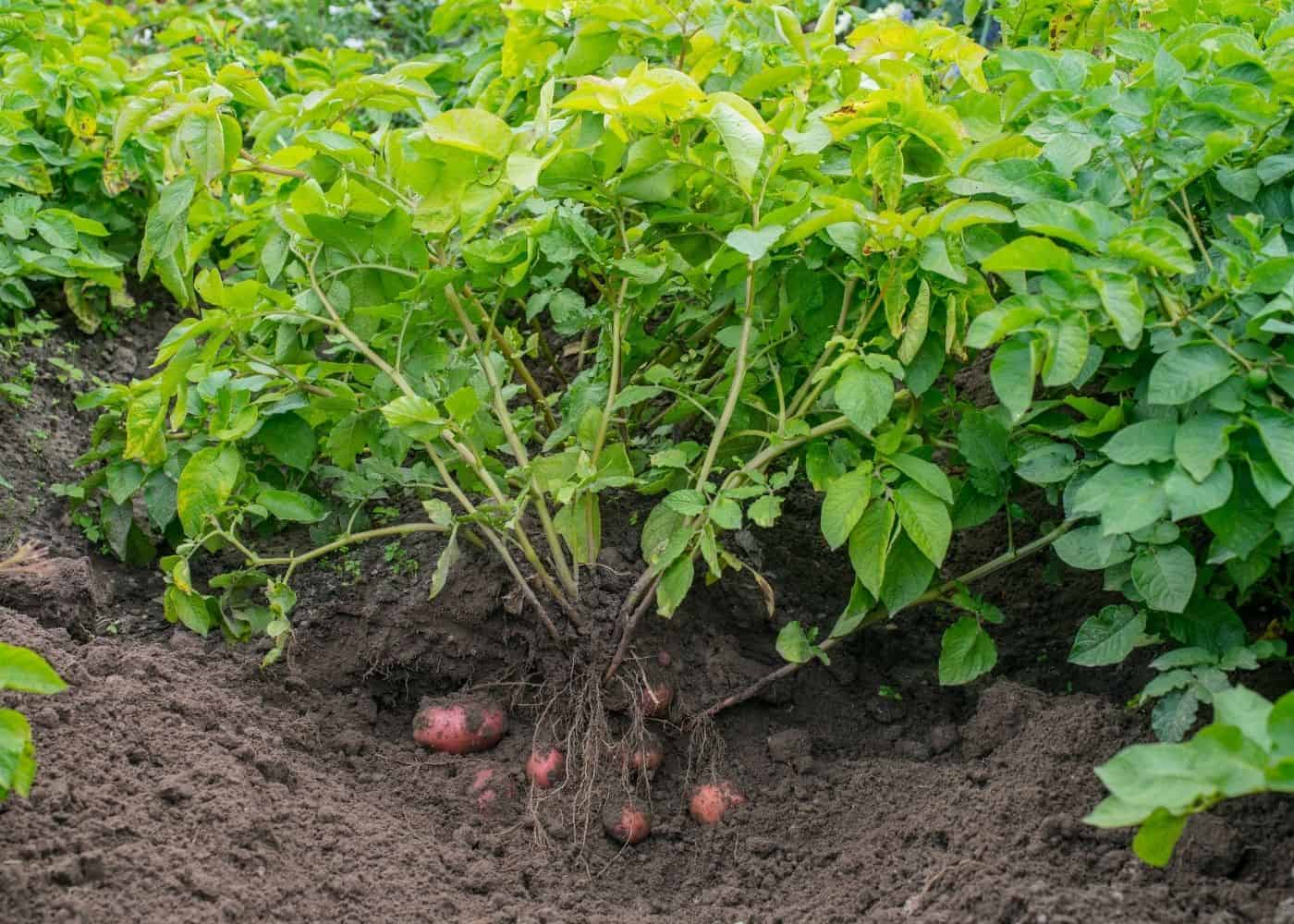Best Companion Plants For Chives
Chives are a versatile herb that can be used in a variety of dishes, from savory soups and salads to sweet baked goods. They are also easy to grow and care for, making them a popular choice for home gardeners.
One of the best things about chives is that they can be companion planted with a variety of other plants. Companion planting is a gardening technique that involves planting certain plants together in order to benefit each other. For example, some plants can help to repel pests, while others can improve the flavor or growth of their neighbors.
If you are looking to add chives to your garden, here are some of the best companion plants to consider:
Carrots: Chives can help to repel carrot flies, which are a common pest of carrots. They can also help to improve the flavor of carrots by releasing sulfur compounds into the soil.
Cucumbers: Chives can help to repel cucumber beetles, which are another common pest of cucumbers. They can also help to improve the pollination of cucumbers.
Tomatoes: Chives can help to repel tomato hornworms, which are a major pest of tomatoes. They can also help to improve the flavor of tomatoes by releasing sulfur compounds into the soil.
Roses: Chives can help to repel aphids, which are a common pest of roses. They can also help to improve the growth of roses by releasing sulfur compounds into the soil.
Grape vines: Chives can help to repel grape moths, which are a common pest of grape vines. They can also help to improve the pollination of grape vines.
Beans: Chives can help to improve the nitrogen content of the soil, which can benefit beans. They can also help to repel bean beetles, which are a common pest of beans.
Peas: Chives can help to improve the nitrogen content of the soil, which can benefit peas. They can also help to repel pea weevils, which are a common pest of peas.
Herbs: Chives can be companion planted with a variety of other herbs, including parsley, basil, and mint. These herbs all have similar growing requirements and can help to attract beneficial insects to the garden.
In addition to the plants listed above, chives can also be companion planted with a variety of other vegetables, flowers, and fruits. When choosing companion plants for chives, it is important to consider the plants' growing requirements and the benefits that they can provide each other.
Chives are a versatile herb that can be used in a variety of dishes, but they're also a great companion plant for other vegetables. They have a strong aroma that can help repel pests, and they can also improve the flavor and yield of other crops.
Some of the best companion plants for chives include:
- Tomatoes: Chives can help repel aphids, which are a common pest of tomatoes. They can also help improve the flavor of tomatoes.
- Carrots: Chives can help improve the length and flavor of carrots. They can also help repel carrot fly larvae.
- Strawberries: Chives can help deter animals that might try to eat your strawberries. They can also help improve the yield of strawberries.
- Roses: Chives can help repel Japanese beetles and black spot, two common pests of roses. They can also help improve the growth of roses.
- Grapes: Chives can help repel pests and attract pollinators, which can help improve the yield of grapes.
If you're looking for more information about companion planting with chives, I recommend visiting Garden Wiki. This website has a wealth of information on the topic, including a list of the best companion plants for chives, as well as tips on how to plant and care for chives in your garden.
FAQ of companion plants chives
- What are the best companion plants for chives?
Chives are a versatile herb that can be grown with a variety of other plants. Some of the best companion plants for chives include:
- Alliums: Chives are an Allium, so they can be planted alongside other members of the Allium family, such as onions, garlic, and leeks. These plants have similar growing requirements and can help to deter pests.
- Carrots: Chives can help to repel the carrot fly, a common pest of carrots. They can also help to improve the flavor of carrots.
- Beans: Chives can help to improve the nitrogen content of the soil, which can benefit beans. They can also help to deter bean beetles.
- Tomatoes: Chives can help to repel aphids, which can damage tomatoes. They can also help to improve the flavor of tomatoes.
- Strawberries: Chives can help to deter slugs and snails, which can be a problem for strawberries. They can also help to improve the flavor of strawberries.
- What are the worst companion plants for chives?
Some plants that should not be planted near chives include:
- Asparagus: Asparagus can compete with chives for water and nutrients.
- Beans: Chives can inhibit the growth of beans.
- Peas: Chives can inhibit the growth of peas.
- Spinach: Chives can inhibit the growth of spinach.
- Winter squash: Chives can inhibit the growth of winter squash.
- When is the best time to plant chives?
The best time to plant chives is in early spring or fall. Chives can be grown from seed or from transplants. If you are planting from seed, sow the seeds 1/4 inch deep and 1 inch apart. If you are planting from transplants, space the plants 6 inches apart.
- How do I care for chives?
Chives are relatively easy to care for. They need full sun and well-drained soil. Water them regularly, especially during hot weather. Chives can be harvested throughout the growing season. To harvest, simply snip off the leaves as needed.
- How do I propagate chives?
Chives can be propagated by division or by seed. To propagate by division, simply dig up a mature chive plant and divide it into several smaller plants. Replant the smaller plants in a new location. To propagate by seed, sow the seeds 1/4 inch deep and 1 inch apart in the spring.
Image of companion plants chives
- Tomatoes: Chives help to repel tomato hornworms, a common pest of tomatoes.
- Carrots: Chives help to repel carrot flies, another common pest of carrots.

- Beets: Chives help to improve the flavor of beets.

- Strawberries: Chives help to repel slugs and snails, which can be a problem for strawberries.

- Potatoes: Chives help to repel potato beetles, a common pest of potatoes.

Post a Comment for " Best Companion Plants For Chives"